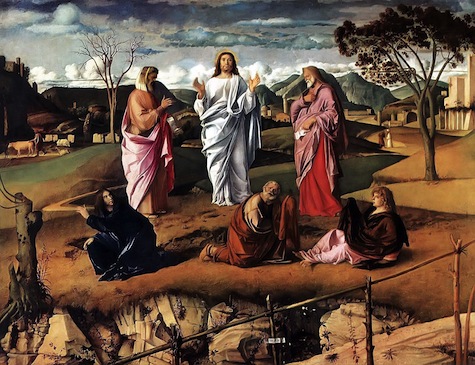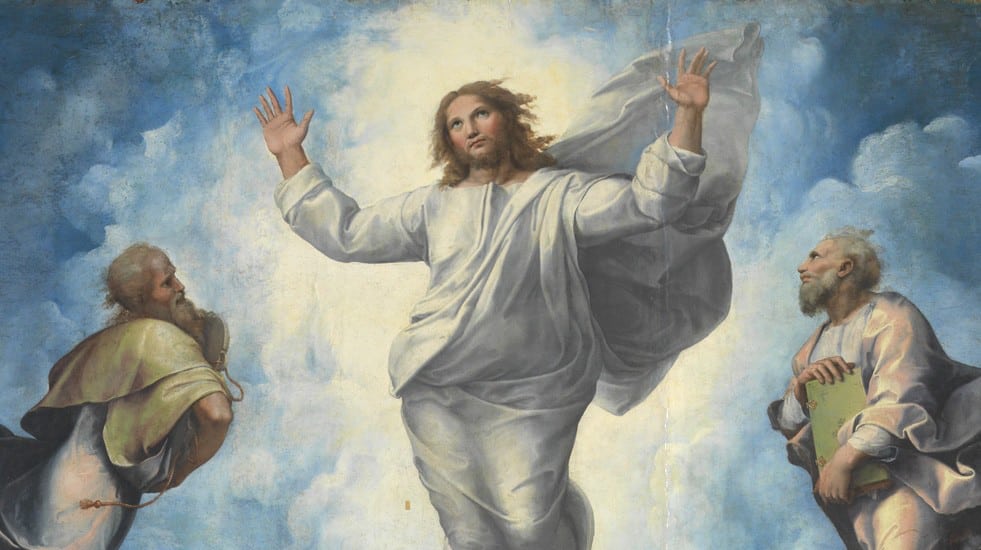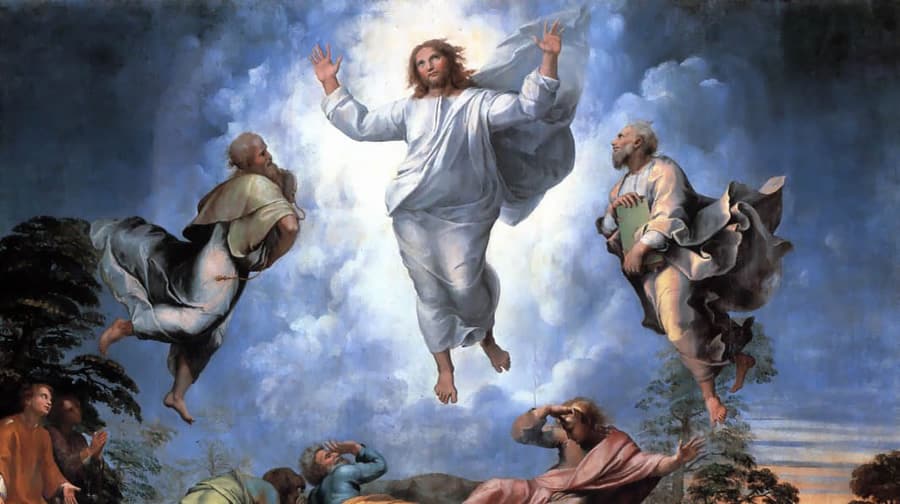 One night, many years ago, the passengers on a train were made very uneasy by a severe storm; lightning was flashing and thunder was rumbling, yet the train continued speeding on in the darkness, with only its headlight piercing the blackness outside. All the men and women in one of the passenger cars seemed quite worried, except for one young boy, sitting by himself and calmly playing with a few toys. Noticing this, a woman asked him, “Sonny, I can see you are all alone here. Aren’t you afraid to travel on a train by yourself on such a stormy night?” The boy answered, “No, ma’am, I’m not afraid. You see, my daddy’s the train engineer” (Roy B. Zuck, The Speaker’s Quote Book, p. 172).
One night, many years ago, the passengers on a train were made very uneasy by a severe storm; lightning was flashing and thunder was rumbling, yet the train continued speeding on in the darkness, with only its headlight piercing the blackness outside. All the men and women in one of the passenger cars seemed quite worried, except for one young boy, sitting by himself and calmly playing with a few toys. Noticing this, a woman asked him, “Sonny, I can see you are all alone here. Aren’t you afraid to travel on a train by yourself on such a stormy night?” The boy answered, “No, ma’am, I’m not afraid. You see, my daddy’s the train engineer” (Roy B. Zuck, The Speaker’s Quote Book, p. 172).
The boy’s potential and very natural fear had been transformed into confidence and trust by his relationship with his father. Perhaps his dad had even, in a quiet moment before the train’s departure, taken him up into the engine and showed him how it worked, then walked with him outside along the train, pointing out how firmly the wheels gripped the rails, and explained how—even at high speeds and in bad weather—the train could continue traveling forward in perfect safety. In the same way, when we have complete confidence in the knowledge, power, and love of the person in charge of us, we can be happy and at peace—and Jesus invites us to have this sort of trust in Him.
All three Synoptic Gospels—that is, Matthew, Mark, and Luke—describe Our Lord’s Transfiguration, and all three note that Moses and Elijah—representing the Jewish Law and the Prophets—appeared to Jesus on Mt. Tabor and were conversing with Him. However, only Luke’s Gospel tells us what they were talking about: the exodus Jesus was going to accomplish in Jerusalem—in other words, how He would free people from their sins by His own death and Resurrection. Our Lord had with Him on the mountain His three closest followers among the apostles—Peter, John, and James—for He wanted them to witness and remember the vision of His divine glory in order to sustain them in their grief and confusion on Good Friday and Holy Saturday. God’s greatness is far beyond our comprehension; sometimes He interacts with us in a way that reminds us of this truth, but always in order to reassure us of His love and fidelity. In the First Reading we’re told that Abram—whose name was later lengthened by God to Abraham—fell into a trance, and was surrounded by a deep and terrifying darkness, in which appeared a flaming torch. It was in this other-worldly setting that the Lord made a covenant with Abraham, announcing that He would give him and his descendants the Promised Land. This promised homeland, of course, is ultimately located in the life to come, for as St. Paul states in the Second Reading, our citizenship is in Heaven. Moreover, the apostle assures us that, in order to make it possible for us to experience the fullness of eternal life, Jesus “will change our lowly body to conform with His glorified Body. . . .” Thus, Our Lord has the power to transform us and raise us up to a higher level of existence.
During the Transfiguration, the three apostles saw Jesus in a new way. We too can have moments of enlightenment which forever change our way of looking at things; for instance, many people who’ve had a near-death experience afterwards notice and appreciate the beauties of the created world and the simple pleasures of life more than ever before. We can have our perceptions profoundly altered even in less-dramatic ways. For instance, one author, commenting on this Gospel passage, writes: “You walk around a picture gallery, one perhaps that you have walked round before, but this time suddenly one picture stands out. It seems to come towards you, it grips you, you see a significance that you never saw before. Or you may be driving in the country and one vista, even if you have passed it many times, strikes and holds you. It is different. It is speaking to you. . . . [Or] You may be reading the Bible and one sentence seems to be directed to you alone, with a meaning which you have never seen in it before, as in this passage of Luke perhaps. When things light up, when things shine mysteriously, a transfiguration is taking place. It is unforgettable. It becomes part of you. It shines in you and from you and it is the gift of the Holy Spirit. . . . bringing you alive, bringing you awake so that suddenly your senses grasp what is there which you never saw before and which others hadn’t noticed” (John V. Taylor, The Easter God, p. 54).
The author goes on to point out that though Peter and the others had been sleeping, they became fully awake, and for this reason they saw Our Lord’s glory. In the same way, we must become more fully awake, even if everyone around us is spiritually asleep—for the more we’re open to God’s presence and activity in our lives, the easier it will be to trust in Him, and to help others do this, too. A good starting point is simply to be more aware of coincidences, which Albert Einstein called “God’s way of remaining anonymous.” When things seem to come together, or an unexpected pattern reveals itself, that may be God’s manner of pointing you in a certain direction, or inspiring you to perform a good deed, or reminding you that He’ll never forget or abandon you. Also, being spiritually awake requires us to remember that God frequently speaks to us through other people— which means we should humbly pay attention when someone gives us an unwanted but necessary rebuke or correction, or challenges and invites us to try something new, or offers us words of compassion and support. All these things can be a message of love from God. Lastly, being spiritually awake means obeying the command God gave the three apostles on Mt. Tabor: “This is My beloved Son. Listen to Him.” We listen to Jesus by praying every day, by coming to church each weekend and truly participating in the Mass, by receiving Holy Communion with profound gratitude and reverence, by praying for the grace not to take the people around us for granted, and by reading the Bible and other spiritually-valuable books—especially during this holy season of Lent.
If we ask Our Lord to help us become more aware of His presence, He will gladly do so—probably not in the dramatic manner experienced by Peter, John, and James at the Transfiguration, but in a way that will gently draw us ever closer to Him. Jesus wants us to grow in our faith, our love, and our spirit of trust—and if we make this effort, He promises that we will begin to see and experience life in a new light, and that one day our bodies and souls will be transformed and made capable of sharing His everlasting glory.






